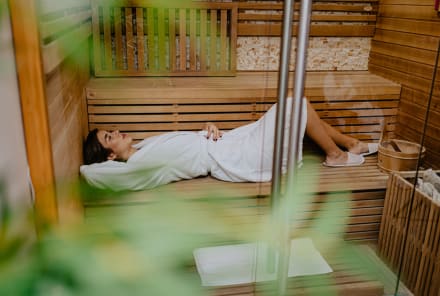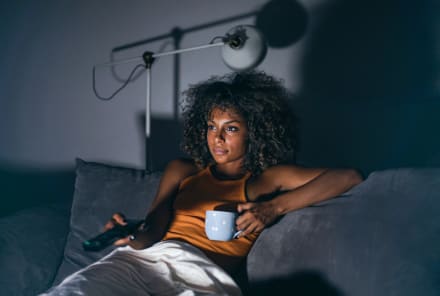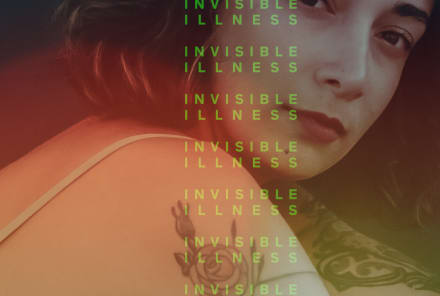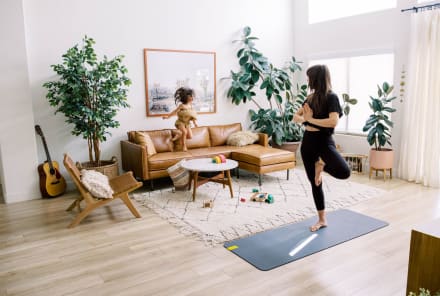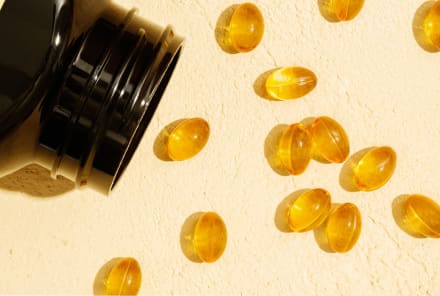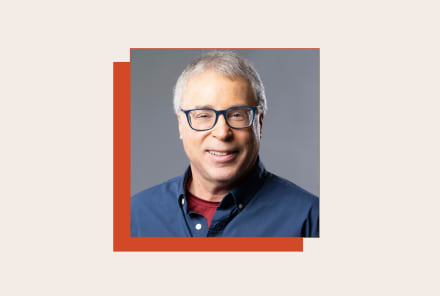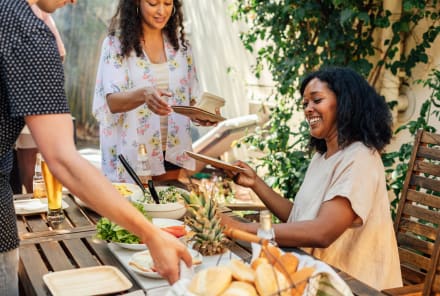Advertisement
I Struggled With Chronic Gut Pain For 31 Years Before Finding Relief From This Surprising Source

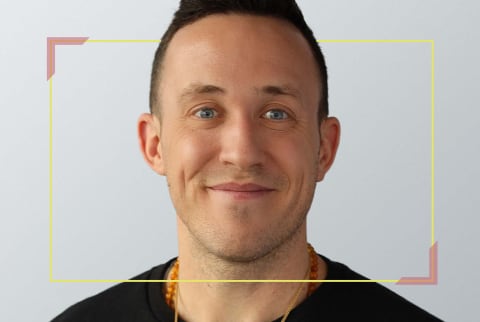
While some health issues are visible to the outside world, many people face chronic conditions that don't have externally visible signs or symptoms—also known as invisible illnesses. In mindbodygreen's series, we're giving individuals with invisible illnesses a platform to share their personal experiences. Our hope is their stories will shed light on these conditions and offer solidarity to others facing similar situations.
I've suffered from chronic gut pain, essentially since birth. At times, it would get so bad that I would begin to question if I was facing my own mortality—it felt like there was no end to the pain. I experienced this roller coaster of symptoms and emotions for 31 years before I finally found relief.
My journey with chronic pain.
As a child, I remember experiencing regular pain that would come on like stomach discomfort. Then, right afterward, my digestion would get really bad. These symptoms would usually be accompanied by a whole host of autoimmune issues, too. All of this would ultimately manifest as a week of feeling sick and uncomfortable.
When I was 12, I watched my mother get sober. In my family, there are a lot of individuals with substance use disorders, and it was a really impactful moment in my life to see someone navigate their mental health and become the person I always hoped they could be. Observing my mom's journey was incredibly inspiring, and as a teenager, it propelled me on my own path exploring the mental health side of my physical symptoms.
Still, while I was discovering just about every mental health modality I could, my chronic pain symptoms continued to get worse and worse. Doctors gave me every test under the sun, but no one could provide answers. The lack of a diagnosis started to lead me down a dark spiral. I was so diligent about trying to alleviate my symptoms, and I was desperate for clarity about my experience.
At one point, I received a potential diagnosis of Crohn's. I immersed myself in information about the disease, trying to learn everything I could, only to find out it was actually a misdiagnosis. I was crushed.
As the years went on, the pain progressed. It would come on like a stomachache, but then within 30 minutes, it would escalate to an overwhelming, all-consuming pain. I lived a 10-minute walk from the emergency room, and it got to the point where I would end up there three or four nights a week. I would show up writhing in pain, and they would just put me on a morphine drip for some relief. Fortunately, I had so much awareness around mental health and addiction—but I could understand how people with chronic pain became dependent on certain medications.
It was in these dark moments, whenever the pain would get really bad, I would begin to wonder if I wasn't supposed to be here.
I found relief through a surprising source.
After 31 years of questions around my chronic pain, I began to seek out other possible solutions. As part of my mental health and spiritual journey, I ended up coming across psychedelics as a promising modality. I'd never considered them before. Due to my family's history with addiction, I thought of myself as an anti-recreational-drug person.
But one day, as I was in the emergency room yet again, I looked at my wife and said, "I need to do something different." My plan? Go to South America to try ayahuasca.
My wife looked at me, confused, and asked, "Let me get this straight, your plan for curing your severe pain is to go to the jungle and drink something that makes you throw up?" But she knew how much I was suffering, and she knew how diligently I was working toward a solution. So I booked a flight while I was still in the emergency room, went home, packed my bags, and flew south from my home in Vancouver.
Psychedelics changed my life.
I don't believe anything is a magic pill or a panacea. But for me personally, after completing four ayahuasca ceremonies, I never experienced chronic pain symptoms again.
During the ceremonies, I didn't have any big cosmic visions or even much purging. But in the final ceremony, I found myself really accepting my pain. I acknowledged that maybe there was nothing to fix, and maybe this was inherently what my human experience was meant to be. This was a cathartic moment. I'd spent my entire life believing there was something wrong with me. At that point of acceptance, I began to feel a shift happen.
Before that, I couldn't seem to bridge the mental and physical parts of my suffering. But afterward, I felt a sense of alleviating that suffering at a very deep level. I created pathways for powerful acceptance and compassion for myself.
I think the other big part of my journey was the community connection I experienced—the feeling of being part of something bigger than myself.
After my own experience, I felt compelled to help others, as well. I acknowledged that not everyone has the ability to hop on a plane and spend a week in the jungle. So I began to question: How can we make these therapies more accessible in our own backyards? And how can we create fundamental change in the way we approach mental health so people have a system of support along their journey? That's where the idea for Numinus came from—my company, which offers a holistic, integrated approach to healing by using the latest advances in psychedelic medicine combined with evidence-based care.
The importance of connection.
After everything I've experienced in my own journey, I really can't understate the importance of mental health support. While no type of therapy is a magic pill, it certainly can make a huge impact on someone's life. Also, the need for education and services to support people along the way is really imperative.
For anyone else experiencing challenges like I went through, I encourage reaching out and finding your community. There are so many people dealing with similar struggles. While the use of psychedelics was maybe the catalyst moment for me, it was really the people I was fortunate enough to find that really made a lasting change in my life. I wouldn't be here today without the support of that strong community.
Watch Next
Enjoy some of our favorite clips from classes
Enjoy some of our favorite clips from classes
What Is Meditation?
Mindfulness/Spirituality | Light Watkins
Box Breathing
Mindfulness/Spirituality | Gwen Dittmar
What Breathwork Can Address
Mindfulness/Spirituality | Gwen Dittmar
The 8 Limbs of Yoga - What is Asana?
Yoga | Caley Alyssa
Two Standing Postures to Open Up Tight Hips
Yoga | Caley Alyssa
How Plants Can Optimize Athletic Performance
Nutrition | Rich Roll
What to Eat Before a Workout
Nutrition | Rich Roll
How Ayurveda Helps Us Navigate Modern Life
Nutrition | Sahara Rose
Messages About Love & Relationships
Love & Relationships | Esther Perel
Love Languages
Love & Relationships | Esther Perel
